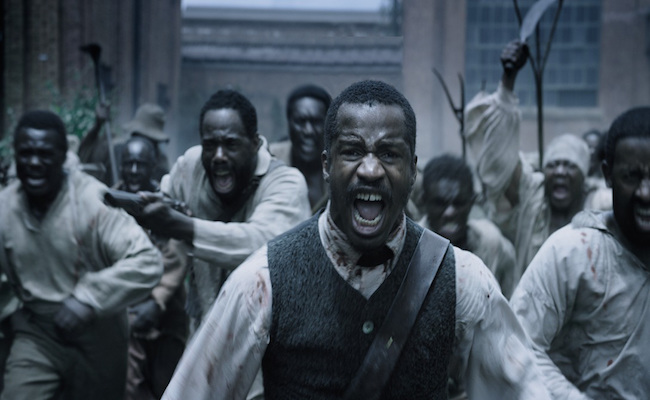Spectra Film Review: THE BIRTH OF A NATION
Like “12 Years A Slave” before it, Nate Parker is trying to make a statement on the fundamentals of generalized racial tensions in the present day of 2016 with his directorial debut “The Birth Of A Nation.” The film is a powerful account on the life of Nat Turner and the slave rebellion he led in 1831 and how it seeks to refine a new motion picture medium not seen by many. The story, which is more conventionally told as opposed to ‘Slave,’ where the film moves from one sweeping moment in history to the next. A biographical drama steeped in grace and horror that can hopefully steer the conversation forward. Parker (who also wrote the screenplay) offers a bold and ambitious take of Turner, a Virginia-born slave and Baptist preacher who led the uprising that claimed 60 white lives and led to the massacre of 200 blacks in return. Before the film picks up there, in a heartbreaking finale, we are treated to Nat’s childhood days on a plantation in Southampton County, Va, owned by the Turner family, where Nat borrows his name.
Throughout recurring scenes we are reminded of the times and tribulations of what era we have just been transported too. Young Nat (Tony Espinosa) often has dreams that he is a prophet and, according to his ancestors, will be a leader among his brothers and sisters. When he wakes up, reality often seeps in. Still, he is allowed to run around and play with young Samuel and is treated with compassion from Mrs. Turner (Penelope Ann Miller) who, upon figuring out Nat can read, gives him a bible and teaches him further.
We fast forward a few years now, and Nat (a now older Nate Parker – riveting) is one of the fastest cotton pickers on the plantation, and leads in ritual prayer every week. Often preparing sermons well in advance, while helping now grown Samuel (played here by Armie Hammer) accomplish daily tasks. Nat is soulful, and finds as much positivity as he can in life, and he starts to admire beauty even more when a woman named Cherry (Aja Naomi King) ends up on the plantation, where the two fall in love immediately. Far from making the movie any less brutal or graphic, Parker allows us a brief respite as we watch the two really develop their relationship, including when they have their daughter after getting married. Yet, quickly we are brought back to the times as other plantation owners catch wind of Nat’s preaching capabilities and quickly request his presence to help build morale among other slaves, who, struggle to find purpose.
From there we are brushed through plot arches, and even harsher circumstances of white supremacy. I won’t go into detail, but the depictions of torture and cruelty are some that won’t go unnoticed, and they reflect in the performance Parker delivers while reading his sermons. Of course, it’s difficult to make a film like this and not expect to waver the line of controversial, and depending on if you are following what goes on behind the scenes, ‘Birth Of A Nation’ is still a powerful motion picture, even if it doesn’t scream ‘Best Picture’ winner. Mainly because it lacks the type of emotional pull of a stand out performance. Sure, Parker is exceptional, but it’s no Lupita NYong’o, who bumped on the radar with her performance in ‘Slave’ just a few short years ago.
But the film’s greatest strength is that it allows us to see the internal conflict between Turner and his realization of what God sees for him. Or whether or not what he is about to do, is the truth and revenge he seeks. This, of course, builds up to a, not-for-the-faint-of-heart, ending that is resonant and sound, but also terrifying.
‘The Birth Of A Nation’ has a potent message we all could learn from today in 2016 and while this isn’t an easy movie to sit through (as most movies about slavery are) it still provides a good starting point for Parker and how far his career can go. Like Turner before him, the possibilities are endless. B+


